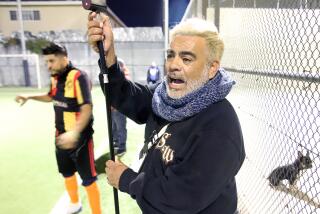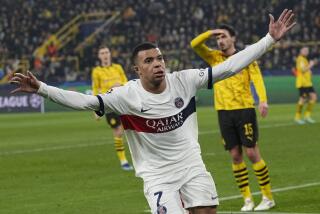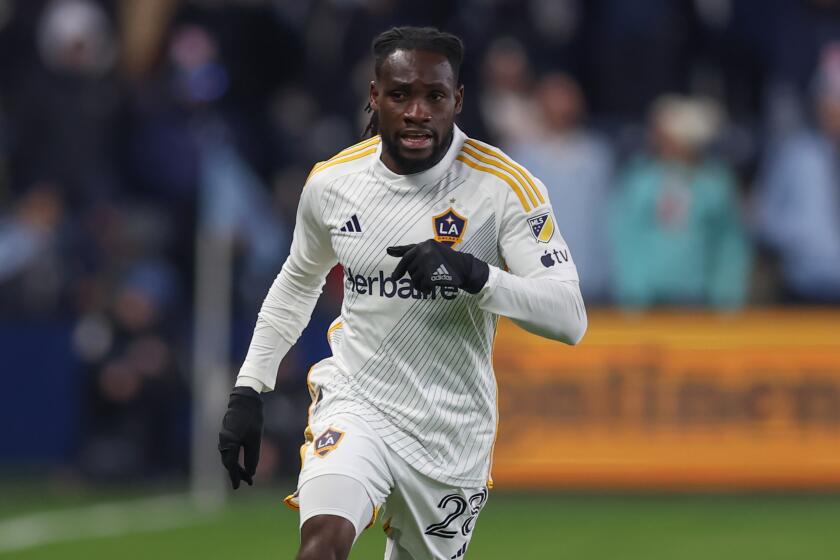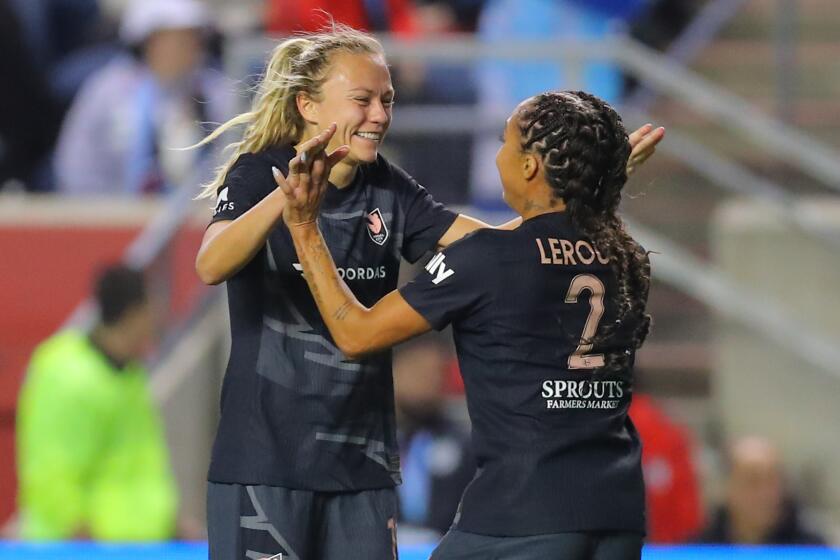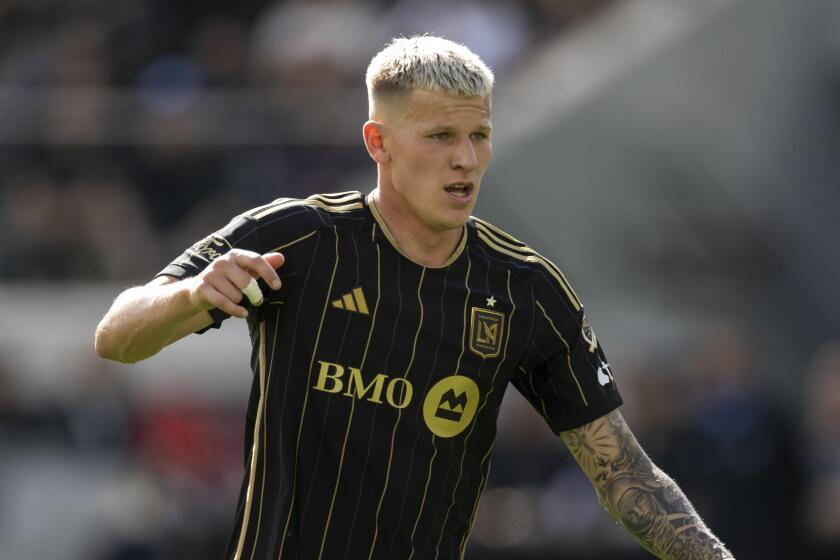Players’ lyrical names help popularize Brazil’s World Cup team
Wizards on the field, the Brazilian national soccer team has drawn fans worldwide with its joga bonito style of play, samba-infused goal celebrations and bright canary yellow jerseys first introduced to a global audience during the 1970 World Cup -- the first broadcast in color.
But there’s another reason for the team’s popularity, and you need only look on the backs of Brazilian players’ jerseys to find it.
Pele, Ronaldinho, Garrincha -- the names of past Brazilian superstars -- roll off the tongue like a verse of great romance poetry. These monikers are not always formal names but instead are often nicknames adopted for soccer.
Pele, widely considered the best soccer player ever, is actually named Edson Arantes do Nascimento, after the American inventor Thomas Edison.
Brazil has a very informal culture in which everyone is referred to affectionately by a first name or a nickname, according to Alex Bellos, author of “Futebol: The Brazilian Way of Life.”
And often, says A. Carlos Quicoli, a professor of Portuguese and romance linguistics at UCLA, nicknames come from school playgrounds and from pickup games on Brazilian streets and beaches.
In a column in the British newspaper the Guardian, Pele said he got his nickname as a kid when he mispronounced the name of Brazilian goalkeeper Bilé as Pilé. A playmate used the mistake to taunt him, and when he moved to the city of Bauru, the “Pilé!” chants evolved to Pele, the name he used to represent Brazil in four World Cups. “Thanks to that goalie Bilé, and a classmate’s little joke, I became Pele,” he wrote. “Now it’s known across the world.”
Other nicknames names come for more practical reasons, such as an inability to learn a player’s name during pickup games, Quicoli says. Don’t know the new kid’s name? Just call him Magrao – the tall, skinny one – and he’s got a nickname.
Hulk, the star forward on the current Brazilian World Cup team, got his nickname because he was obsessed with the comic book character as a child. But physical attributes are often used to peg nicknames and if you take one look at Givanildo Vieira de Souza’s muscular build it’s easy to see why “Hulk” stuck.
Dunga, captain of Brazil’s 1994 World Cup title team, got his nickname from the Brazilian name for Dopey, from Disney’s “Snow White and the Seven Dwarfs” film – because of his short stature as a kid.
Garrincha (for “little bird”), who played for Brazil in three World Cups from 1958 to 1966, was given his nickname because he flew right through defenders with his dribbles.
A boy named Artur became Arturzico (little Artur), which was then abbreviated again to Zico, the famous Brazilian player of the ‘70s and ‘80s.
Sometimes the diminutive is not a choice. Ronaldinho used his nickname to avoid being confused with his slightly older teammate Ronaldo – they both were on Brazil’s 2002 World Cup winning team.
But what if you have a common name? Brazilians tack the name of the region where you were born to the end of your name to be more easily identifiable. For a while, Ronaldinho went by Ronaldinho Gaucho (from Rio Grande do Sul) to distinguish himself from other Ronaldinhos.
And over time, English names have worked their way into the Brazilian lexicon, Quicolo said. Brazil’s 2014 team has three players, Willian, Jefferson and Maxwell, whose names have English roots --- with slight, if any, alterations.
Of course, some Brazilians are just born with great names. The captain of Brazil’s 1982 World Cup squad was a 6-foot-4 midfielder with a doctorate in medicine whose first name was Socrates. And the current Brazilian team includes a defender named Dante.
